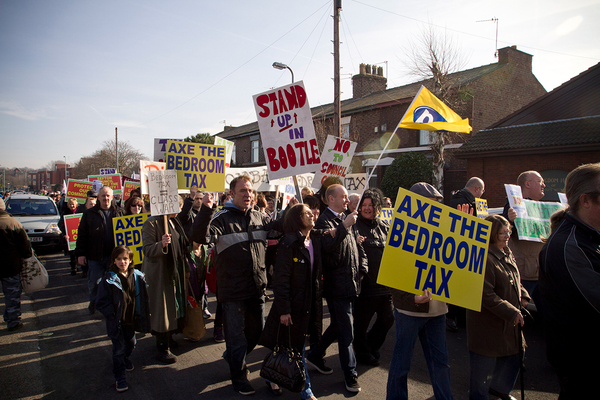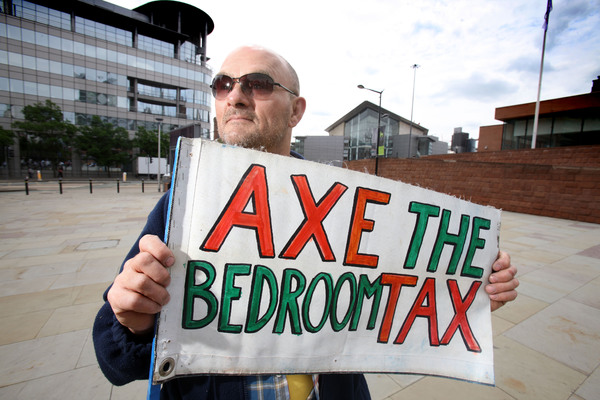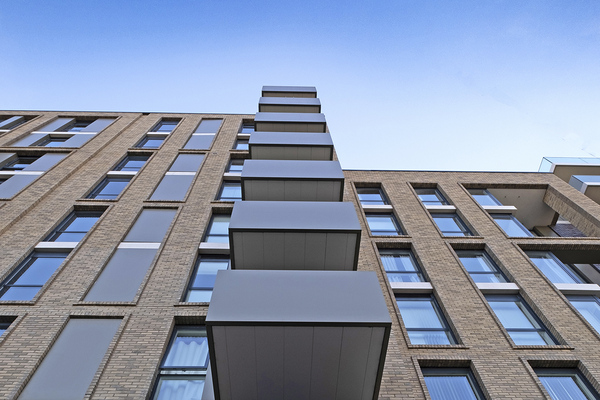You are viewing 1 of your 1 free articles
Northern Ireland faces bedroom tax ‘cliff edge’ if action not taken by September
Leaders from Northern Ireland’s housing sector are demanding changes to the law by September to avoid 34,000 households across the country being adversely hit by the bedroom tax.
Campaign group Cliff Edge NI Coalition, which has more than 60 members from across the housing and charitable sectors, has warned that a solution must be found by the end of September to prevent social housing tenants being hit with a £50-a-month cut to their benefits as a result of the tax.
The Social Sector Size Criteria, commonly called the bedroom tax, reduces the amount of housing benefit paid to social housing tenants deemed to have more bedrooms than they need.
Northern Ireland’s last government introduced mitigation payments to insulate tenants from the policy shortly before it collapsed in January 2017, in recognition of the region’s chronic shortage of one-bedroom homes.
These measures are due to end in March 2020, leaving tens of thousands of social tenants facing significant cuts to welfare payments.
However, with no ministers currently in place at Stormont amid an ongoing political crisis, there is no mechanism available to extend the payments.
Eileen Patterson, director of communities at Radius Housing and a leading figure of the campaign, said: “We believe that, come the end of September, something has to happen and that agreement on an alternative system to mitigation payments needs to be achieved.
“We can’t wait beyond that date as whatever may be agreed, time will be required to design and implement the preferred system for payments and to secure the required budget.”
Talks between Northern Ireland’s political parties over forming a new government are ongoing, with the UK government set to call an election in August if no agreement has been reached.
A report published by the region’s Department for Communities (DfC) in March suggested that Discretionary Housing Payments (DHPs) could be expanded to cover the bedroom tax.
DHPs are allocated to provide financial support for people whose housing benefit or housing element of Universal Credit does not cover their rent.
The report added that continuing the mitigation payments – which is campaigners’ preferred option – would require the Westminster government to pass legislation.
Ms Patterson said: “If by the end of the summer it is not looking like the assembly will be re-established in time for legislation to be passed, we need to know if the secretary of state or the permanent secretary will be looking for the budget to widen Discretionary Housing Payments and commence work on developing the systems so that they can be in place in advance of March 2020.”
The DfC estimates it would cost £22.1m a year to continue to mitigate the bedroom tax in Northern Ireland, plus £3.33m to protect the 1,500 households set to be hit by the benefit cap from April 2020.
A spokesperson for the DfC said: “A decision on the provision of any future mitigation measures from April 2020 will be a matter for incoming ministers.
“The department is aware of the challenges likely to arise from the termination of the welfare mitigation package and the issues are being considered by officials to ensure that appropriate advice is available for an incoming minister.
“An extension of the existing Discretionary Housing Payment provision has been identified as an option for providing financial support for people affected by the Social Sector Size Criteria (commonly referred to as the bedroom tax).
“However, this would require a change to the existing legislation and the allocation of appropriate funding.”












